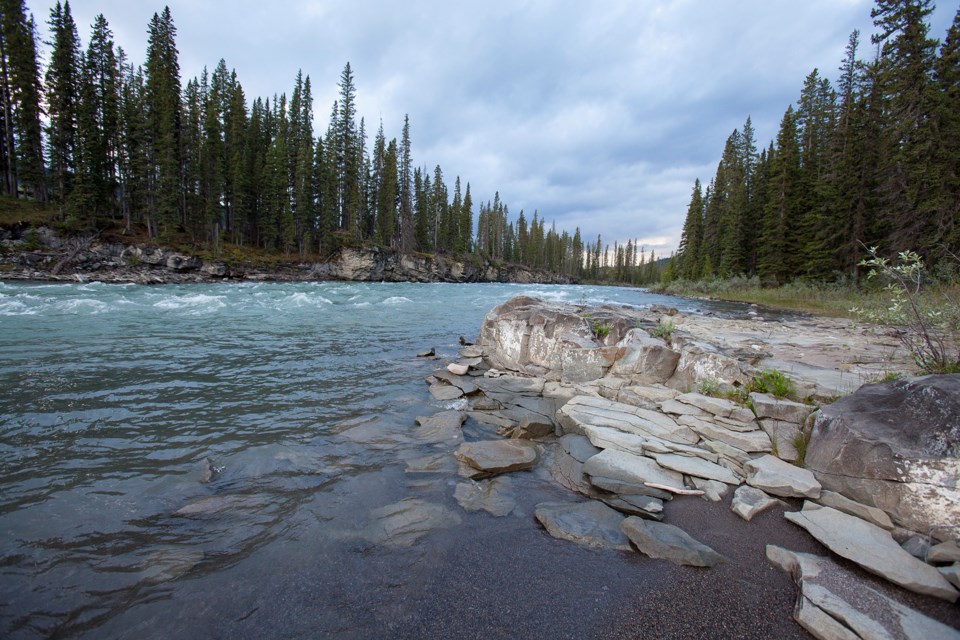SUNDRE — Politicians who are promising the province’s water will remain protected from any coal mining industry expansion's pollution, should be held accountable in the event of any future contamination, a local rural property owner says.
With the UCP recently coming under fire from Albertans across all walks of life over controversial plans to expand coal mining in the Rocky Mountains, Premier Jason Kenney’s government has been in damage control mode attempting to allay concerns that many people like McDougal Flats resident Robert Beuck have about the potential for unintended consequences down the proverbial road.
After initially showing no sign of backing down, the government eventually reintroduced the 1976 Coal Policy that had last year during the midst of the unfolding pandemic been discreetly discarded without widespread public consultation and very little fanfare on a Friday prior to the May long weekend.
However, restoring the Peter Lougheed-era regulations was only a temporary measure until the government completes consultations on drafting an updated policy. And Sonya Savage, minister of energy, said that exploration activities would continue on six projects, two of which were approved after the Coal Policy was rescinded.
More recently, the minister announced exploration activities on Category 2 lands have been suspended for the duration of the consultation.
“That’s definitely a step in the right direction,” said Beuck, an avid outdoor enthusiast who is also a member of a sustainability coalition that made presentations to Clearwater County and Town of Rocky Mountain House councils.
Both councils subsequently prepared and sent correspondence to the provincial government expressing concerns and demanding pertinent details before being able to voice support for plans to expand the coal industry. When he spoke with The Albertan on April 29, he was working to arrange similar presentations to Mountain View County and Town of Sundre councils.
“I’m really glad that it did get to this point, where they have stopped that,” he said about exploration activities on Category 2 lands.
But Beuck added that he “can see they’re still clearly trying to find avenues to go ahead.”
Previously an apolitical individual who didn’t identify with a specific party and was never particularly concerned about the machinations of bureaucracy and government with elected officials who all too often flip-flip on issues depending on where the wind blows, he said the UCP’s actions have forced him to reconsider his position.
“It’s become so bad, you have to do something. Since I moved to Alberta 23 years ago, this is the worst government we’ve ever had here,” he said.
“The current government has taken things to the next level. We have to start becoming more politically active, and start holding our politicians accountable for what they do.”
Speaking candidly, Beuck said he does not want to be hypocritical, and fully recognizes that he not only drives a fuel-powered vehicle to access the backcountry on hiking, canoeing, and camping excursions, but also made a living in the energy sector.
Yet one must be realistic about the world and must therefore also recognize the vital importance of clean water, he said.
“It’s our most valuable resource,” he said.
And he’s not convinced whatever pittance the royalties will generate, are worth the risk of selenium-contaminated headwaters that would pose not only a monumental clean-up cost but also a serious threat to the health of anyone downstream.
Not exactly helping to alleviate those concerns, are recent headlines of previously unreported government data indicating some rivers and streams in the province have already been polluted with toxic levels of selenium by the coal industry, even years after the closure of mines.
An analysis of the data conducted for The Canadian Press by Bill Donahue, a former executive director of science with Albertan Environment, uncovered levels of selenium in the Gregg and McLeod rivers as well as Luscar Creek — all located east of Jasper in the foothills — that substantially exceed amounts deemed safe.
“If coal mining does go ahead, and water should become contaminated, politicians who decided to let this go ahead should be held legally accountable for that too,” said Beuck.



